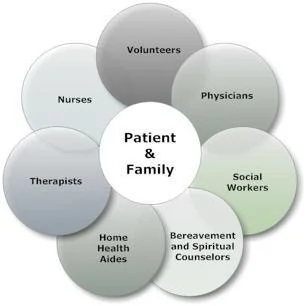
How To Combat Caregiver Stress
Until science finds a way to prevent or cure Alzheimer’s disease or one of the related forms of dementia, the challenging responsibilities of daily care falls on the caregiver. For caregivers who have been on this journey, we know that initially this takes an emotional toll resulting from losing the person who we once knew. As the disease progresses there is an additional physical toll resulting from the need to provide ongoing personal care. For many caregivers financial concerns weigh heavily as the disease progresses. The risk for caregivers to have stress is unfortunately to be expected. To continue to be available for the demands of caregiving, caregivers must take time away from caring and care for themselves. So what to do- here are the 5 suggestions I offer caregivers who come see me for advice and guidance.
#! Exercise, Exercise, Exercise- This is #1 to reduce stress, combat depression and lower risk to the impact stress has on our immune system. Daily exercise even for 10 minutes can have a positive impact. Going to the gym is great but taking a walk is good enough.
#2 Eat a healthy diet- Full of fruits and veggies, fish etc. You know the drill. If it doesn’t compromise an existing medical condition allow yourself a welcome treat-you deserve it!
#3 Socialize with others- It’s critical to take time off from caregiving and return to activities and being with others. Often when I suggest this to caregivers they respond by saying they can’t get away. For most caregivers this can be resolved if they are ready and willing to ask and get help from others.
#4 Start or reconnect to spirituality- this can mean something different for each of us. For some it occurs when being closer to nature, even seeing pictures of nature, listening to music, practicing yoga.
Taking care of yourself daily is not a luxury; it is essential for caregiver’s health and wellbeing.
In need of additional advice, contact me at: http://www.viviangreenkorner.c...

Why does someone with dementia ask the same question over and over again?????
When an individual with Alzheimer’s disease or a related form of dementia asks the same question repeatedly this can be so unnerving to caregivers. Why does this happen?
First it is important to establish that repeated questions are not due to hearing loss. If hearing loss is not an issue then the repeated questions are due to the person’s inability to retrieve information. The person hears the answer to their question but the neuropatholigical changes in the brain have created a loss resulting in the lack of ability to store memory of new information. If information cannot be stored then it cannot be retrieved. Repeatedly asking the same question can also be due to the loss of ability to focus in order to understand the information, store and recall it. The part of the brain, which enables a person to change to a new subject or activity, may be damaged due to the dementia. If so, the person will be ‘stuck’ on one word, topic, or activity and be unable to stop repeating it over and over again.
Here are some tips to mange this challenge:
- Respond to the repeated questions in a calm tone of voice
- Recognize that repeated questions could be caused by fear, anxiety, agitation or unmet needs. For example, the person repeats asking why am I going to the doctor because they are fearful that they will end up in the hospital. Connect to their emotion.
- Avoid situations that may cause anxiety and convey a feeling of control and security. For example seek healthcare providers that offers services in the home such as a podiatrist, dentist, or physical therapist.
- Refocus to something pleasant. For example take a walk or have a delicious snack.
- Engage in a meaningful task such as folding clothing, emptying the dishwasher.
- Avoid the temptation to say, “I already told you”. Keep in mind that they cannot retrieve new information.
If you need advice and tips dealing with your situation, contact me at: http://www.viviangreenkorner.c...

Guest Contributor
Angela Marsh,LPN
Community Liaison Life Source Services
The Benefits of Hospice
The dreaded H word while so many think hospice is a death wish and a way of ending their loved one’s life it’s improving the quality of a patient's last days by offering comfort and dignity.
There are some important facts about hospice that people don’t know. And this may be keeping people from getting the best care possible, when they need it most.
1. Hospice is not a place—it’s high-quality care that focuses on comfort and quality of life.
2. Hospice is paid for by Medicare, Medicaid, and most insurance plans. Fear of costs should never prevent a person from accessing hospice care.
3. Hospice serves anyone with a life-limiting illness, regardless of age or type of illness.
4. Hospice provides expert medical care as well as spiritual and emotional support to patients and families.
5. Research has shown that the majority of Americans would prefer to be at home at the end of life—hospice makes this possible for most people.
6. Hospice serves people living in their home, independent and assisted living facilities and nursing homes.
7. Hospice patients and families can receive care for six months or longer.
8. A person may keep his or her referring physician involved while receiving hospice care.
9. Hospice offers grief and bereavement services to family members to help them adjust to the loss in their lives.
Research has shown people receiving hospice care can live longer than similar patients who do not opt for hospice. http://www.nhpco.org If this information about hospice surprises you, take the time to find out more. The best time to learn about hospice is before you or someone in your family is facing a medical crisis.
How hospice works
If you qualify for hospice care, you and your family will work with your hospice team to set up a plan of care that meets your needs. You and your family are the most important part of the team that will also include:
- Doctors
- Nurses/nurse practitioner
- Counselors
- Social workers
- Certified Home Health Aides
- Volunteer
- Clergy
Hospice also provides significant durable medical equipment and supplies.
How long you can get hospice
Hospice is for people with a life expectancy of 6 months or less. If you live longer than six month, you can still get hospice. Hospice care is available for two 90-day benefit periods, followed by an unlimited number of 60-day benefit periods. The hospice medical director or other hospice doctor must recertify to get hospice care.
The hospice to be provided must be Medicare approved to get Medicare payment. For more information, ask your doctor, the hospice provider, your state hospice organization or state health department.
Life Source Hospice stresses that hospice is about adding life to every day
Angela Marsh is currently the Community Liaison for Life Source Services in Paramus, NJ. Angela has worked in hospitals, retirement and nursing homes and specializes in geriatric and palliative care. She lectures frequently to nurses, home health aides and at public forums. In 2014 Angela was awarded LPN of the year by the New Jersey Hospice and Palliative Care Association.



